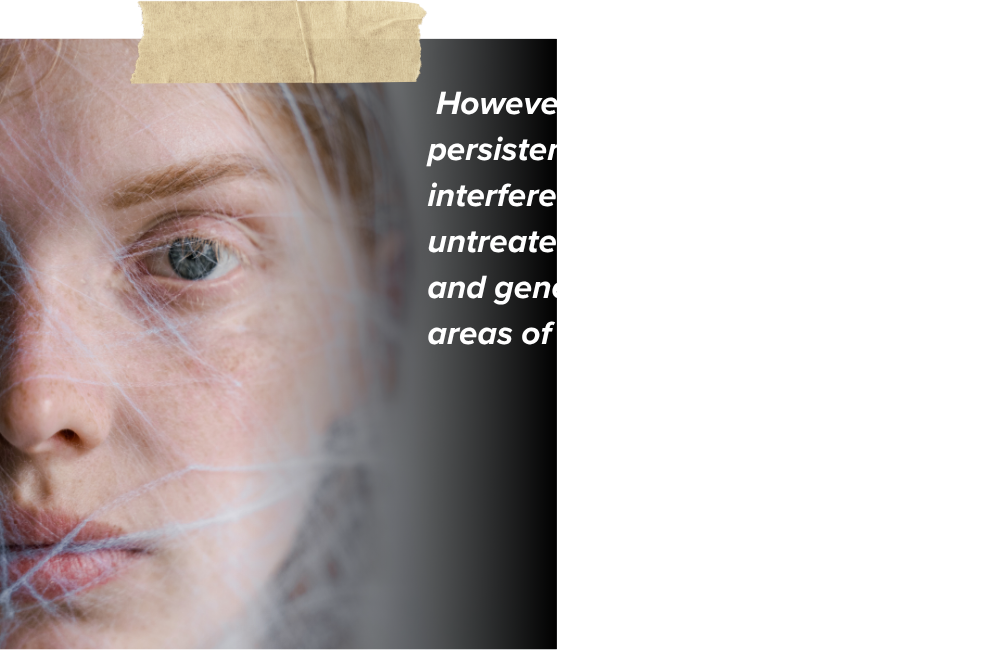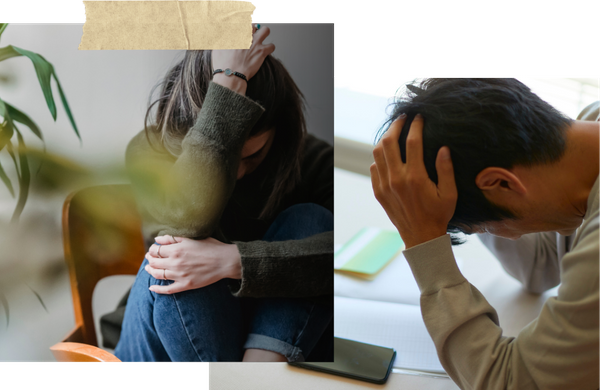Anxiety

Find Relief from Anxiety with Our Proven Treatments
Anxiety is a natural response to stress, and everyone experiences it at times.

Common symptoms of anxiety include:
Racing heart or increased heart rate
Feelings of tension, restlessness, or irritability
Difficulty concentrating
Excessive worry or intrusive thoughts about the future
Stomach discomfort or nausea
Insomnia or difficulty sleeping
Avoidance of people, situations, or responsibilities

Anxiety vs. Fear: Understanding the Difference
Many people confuse anxiety with fear, but there are important differences. Fear is a short-lived, present-moment response to a clear and immediate threat. In contrast, anxiety is future-oriented and tends to be a prolonged response to a vague or uncertain danger. For example, fear of dying or fear of being judged—without a known, immediate threat—is a form of anxiety.
When Worry Becomes a Problem
- While occasional worry is a normal and adaptive part of life, it becomes problematic when it’s frequent, difficult to control, and causes significant distress. Some people hold false beliefs about worrying, such as:



These beliefs may reinforce chronic anxiety. Additionally, avoidance behaviors—avoiding situations or people that trigger anxiety—may provide short-term relief but ultimately strengthen anxiety over time, creating a negative feedback loop.

How Anxiety Treatment Helps You Heal
In therapy, we will work together to identify the underlying causes of your anxiety and the ways it may be unintentionally reinforced. This includes examining patterns like perfectionism, people-pleasing, avoidance, all-or-nothing thinking, and unhelpful beliefs. Through personalized anxiety treatment, I will help you:
- Develop healthier thought patterns
- Set and maintain appropriate boundaries
- Learn effective coping skills
- Increase self-compassion and self-care
- Reduce or eliminate anxiety symptoms over time
“The foundation of all mental illness is the unwillingness to experience legitimate suffering.”
— Carl Jung
If you’re seeking anxiety therapy in Florida, Colorado, or via teletherapy in PSYPACT states, I invite you to reach out and take the first step toward relief and resilience.
*PRICING | THERAPY WITH DR. SEGUIN, Licensed Psychologist
30-minute therapy session: $125 | 50-minute therapy session: $200 | Initial, Intake Session: $245
You have the right to receive a “good faith estimate” explaining how much your medical and mental health care will cost. For questions or more information about your right to a good faith estimate, visit www.cms.gov/nosurprises
